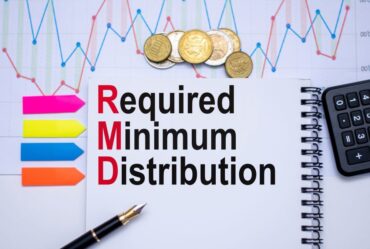SEP IRA or Self-Employed 401K?
When you’re self-employed, it can be difficult to know which retirement plan is right for you. Should you choose a SEP IRA or a Self-Employed 401K? Both have their pros and cons, and it can be hard to decide which is best for your particular situation. In this blog post, we will discuss the differences between SEP IRAs and Self-Employed 401Ks, as well as the eligibility rules from the IRS. We’ll help you decide which plan is right for you!
A Guide for Solopreneurs
The SEP IRA
SEP IRAs are available to any business owner, regardless of the number of employees. You can contribute up to 25% of your income, up to a maximum of $61,000 for 2022. The contribution limit is much higher than that of a traditional IRA or Roth IRA. SEP IRAs are also easy to set up and maintain – you can do it all yourself without having to hire a third-party administrator.
The main downside of a SEP IRA is that you’re limited to a lower contribution limit based on the percentage of your income. If you’re looking for more flexibility and control over your investments, a self-employed 401k may be a better option. With a self-employed 401k, you still can choose from a range of investment options, and depending on if you’re a sole proprietor or a corporation, the annual contribution limits are much higher than the SEP IRA on a percentage of income.
The Self-Employed 401K
A Self-Employed 401K is a retirement savings plan that is available to sole proprietors and business owners with no employees. The best part about this plan is you are allowed to include your spouse. This type of plan allows you to make tax-deductible contributions to a traditional or roth 401K. The contribution limit for a Self-Employed 401K is the same $61,000 for 2022 (plus an additional $6500 if you’re over the age of 50 in 2022). The figure includes your “company” match (essentially still you).
So what’s the deal? Do I choose a SEP IRA or a Self-Employed 401K?
So which is right for you? It depends on a few factors, including your business structure, income, and retirement goals. If you’re self-employed and have no other employees, a SEP IRA is probably the simplest and most straightforward option. Whereas the self-employed 401k would allow you to shelter more tax for less income, and you can include your spouse in the plan, allowing for max tax-breaks as as solopreneur. Personally, I refer to the self-employed 401k (often called a “Solo 401k”) as the gold standard. As far as defined contribution plans, the solo 401k will allow you to maximize profits and minimize taxes. But be sure to consult with your financial and tax advisor to determine which plan is right for you. There are several nuances and it is important to make sure you’re not making a mistake.
Reach out if you’re not sure.
Do you have any other questions about choosing between a SEP IRA and a Self-Employed 401K? Let us know in the comments below! And be sure to check out our other blog posts for more great financial advice.
Contact me today!
Matt Ward, CFP®
817-238-6300





